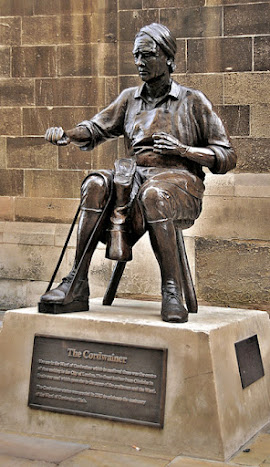Business As Usual - April 22, 1896
Not in a good way.
The strike finally ends after and vote and nothing changes. The writer notes that "the sweatshops will still flourish...the old wages will still be paid and twelve to fourteen hours of toil will still constitute a day's work." In other words, the Manufacturers win big. To add salt to the wound, they make no commitment to rehire the strikers who haven't already crossed the picket line having made ample use of scabs. Then there is the future status of the union, about which one manufacturer states "From this day forward, we will recognize no unions of any kind and will run our business free from any outside dictation." The union officers try to stress what was gained but then what else is there to do. Still behind the polished statements of both sides, one can't but sense the bitterness of feelings and the resolve for the future fights ahead. It sets the stage for more strikes including the massive 1911 strike, lead by women, that made real gains for workers conditions. But that would be later. Those of us who enjoy an eight hour workdays and job benefits today can hopefully appreciate the sacrifice and fight that it took to obtain that standard.
I hope I didn't travel too far down the rabbit hole with this series of articles on the strike. There can be little doubt that it, along with labor struggles of that period, had a significant effect on the Vokoun family as so many of them worked not only in tailoring but as workers in so many industrial fields. I think they present a window to their world of the time which is one of the goals of this blog. Thanks so much for sticking with it!





Comments
Post a Comment